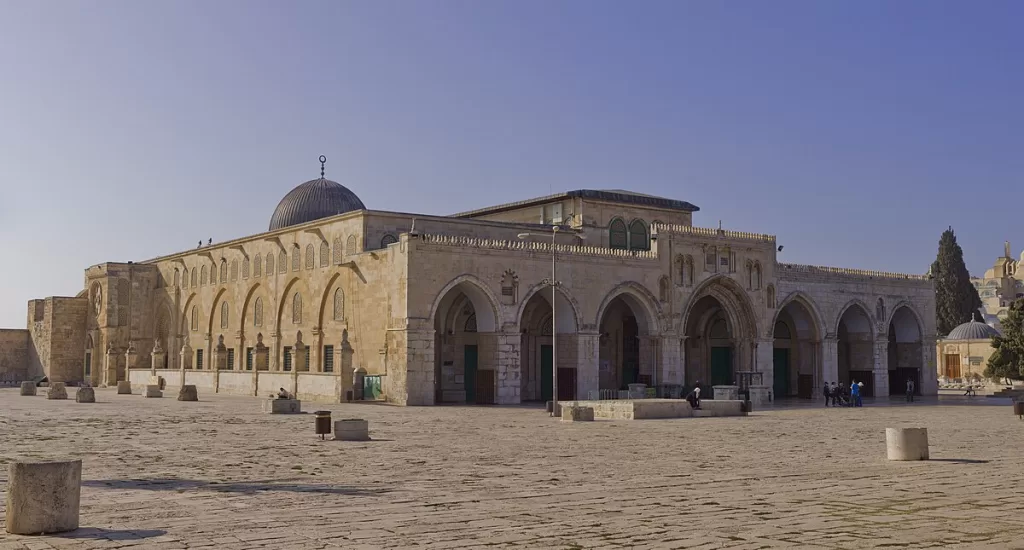Muhammad Haniff Hassan © August 2001
Islam is a Mercy to all mankinds. This demands its followers to take an active role in ensuring harmony in this world – a responsibility that has been entrusted to them as God’s vicegerent on earth.
It is a trust that should be maintained and manifested by each and every Muslim no matter where he is. Being a minority is not an excuse for one to remain within the security of one’s own group. Throughout Islamic history, there were many instances in which Muslim played positive and constructive roles despite being the minority – the prime example being how Rasulullah (saw) in his migration from Mecca to Medina spread the message of Islam. Among the Companions was a small group that seek refuge in Ethiopia, which was then a Christian majority and the Muslims in China such as Admiral Cheng Ho, also rose to positions of power in the government during the reign of the emperors despite being a minority. This proves that Islam is not about rituals but is concerned with the welfare of the society and nation.
“National engagement” should be part of our da’wah effort as it provides us with the experience required in national, political and public issues. It will help us to identify the avenues for dissemination and sharing of information on Islam as well as means of building public opinion.
In general, “national engagement” refers to the active involvement in national issues, whether directly or indirectly, which are of public interest and transcend the interests of the Malays and Muslims.
While this effort is not totally absent from our community, it still has to be substantially increased to the extent that da’wah programmes are not seen as being too Malay and being exclusively for Muslims only. Unfortunately, within the da’wah movement itself, this effort has not been very significant.
Within a da’wah movement like PERDAUS, efforts at driving home the “national engagement” message should begin by building awareness and sensitivity towards national issues among the activists. A new culture has to slowly develop, changing the mindset from being exclusive to being inclusive, and from being inward-looking to being broadminded. This agenda should be incorporated in all developmental programmes for the individual activists as well as the organisation.
There has to be a clear definition of national engagement in terms of its concept, needs, principles, limits, and direction. Once accomplished, it has to be popularised so that the culture of “national engagement” will spill over onto the rest of the society. To have a clear definition of “national engagement’ nad its focus, require extensive research so as to avoid any wastage of resources and possibly unpleasant repercussions.
The culture of “national engagement” in the da’wah movement should manifest itself in the drafting of plans, systems and programmes. At the same time, it has to be fully supported by activists who embrace its vision whole-heartedly and carry it out with dexterity.
With careful planning and concerted efforts, the da’wah movement itself may even shape the national agenda, a sign of the constructive role that the da’wah movement can make for the nation.
Among the benefits of incorporating “national engagement” agendas in da’wah efforts are;
1. Shaping the policies of the nation
2. The opportunity for networking with various agencies
3. Identifying and increasing the number of those who sympathise with the movement
4. Giving those with leadership qualities national exposure
5. Shaping public opinions regarding certain issues
Among the programmes that can be initiated are;
1. to conduct research into “national engagement”. This can be achieved through scholarships at Masters or PhD levels for those who are qualified.
2. To formulate da’wah principles that would guide the da’wah efforts at national levels such as a National Da’wah Plan, The principles of Moderation in Da’wah and Modules in Understanding Religion and Culture at the Institute of Public Service.
3. Educating da’wah activists on national engagement through campaigns, books, flyers, articles and others.
4. To change the curriculum of madrasahs in-line with the principles of national engagement
5. Popularising the concept of pro-religion and universal values in the society and in government policies.
6. Reactivating the dynamism of the Inter-religious Organisation (IRO) which was initiated by the late Sheikh Abdul Aleem Siddique.


